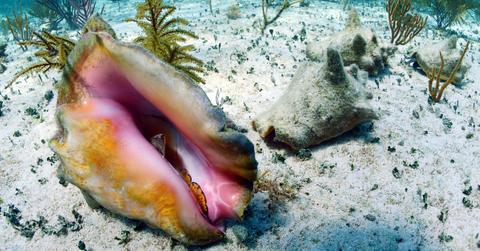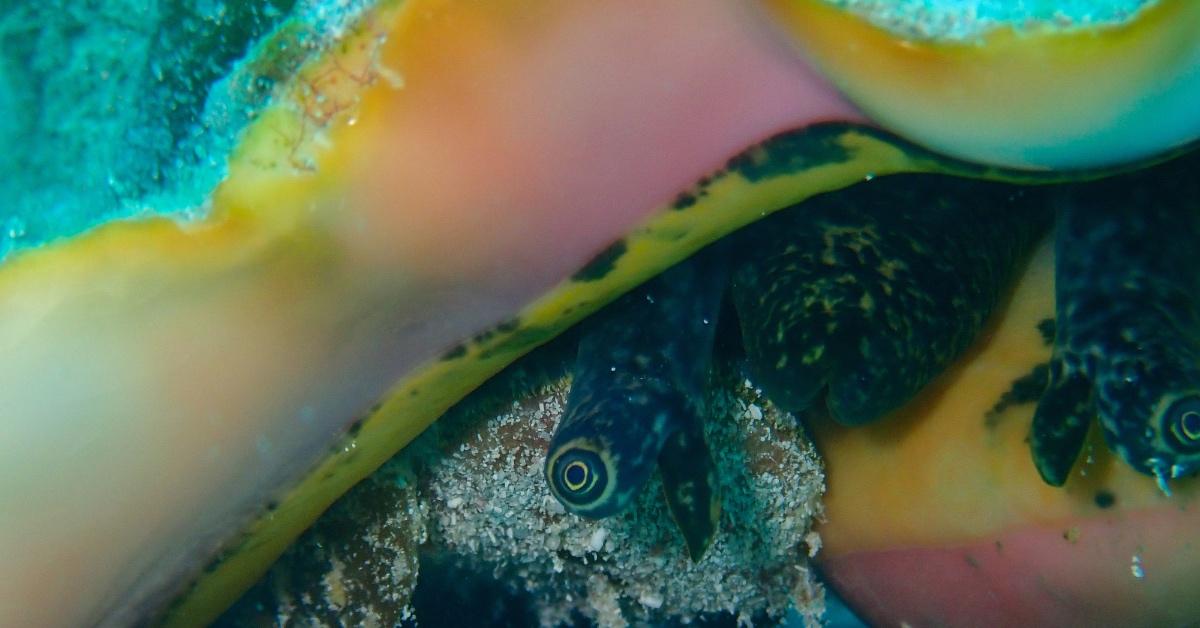Tinder for Shellfish? Florida Creates “Speed Dating for Shellfish” Program to Boost Populations
The combination of hot and shallow water in the Florida Keys has made it hard for conchs to find a mate.
Updated Sept. 18 2024, 12:00 p.m. ET

Cupid's arrow is pointing directly into the warm waters off the coast of the Florida Keys, as researchers turn themselves into matchmakers. Their target? A quickly dying breed of queen conchs who appear to be looking for love in all the wrong places.
The mollusk populations have dropped to dangerous levels after extreme temperatures rendered most of the population unable to find mates, prompting a mostly human intervention that is hilariously referred to as "speed dating for shellfish."
How are researchers finding out what it takes to create a match made in heaven (AKA: saving the beloved shellfish from the brink of extinction) for these beloved conchs? Keep reading to find out!

Researchers are trying to help shallow water conchs find their "shell-mate."
A crew of employees from the Florida Fish and Wildlife Conservation Commission (FWC) have taken on the added task of helping the queen conch find a date after the waist-high waters of the Keys have made it next to impossible for the conches to breed.
An FWC team member working on the project says that the warmer water is changing their biology.
Gabriel Delgado explained the process to The Guardian, telling them that the increased ocean temperature in the Florida Keys — which reached 101.19 degrees in 2023 — has caused the mollusks to become infertile. Delgado says that some creatures are getting so warm that they don't even bother fully developing their reproductive organs, instead opting to focus all of their energy on trying to survive.
The solution? FWC employees and a band of local volunteers are moving those conchs away from the warm shallow waters where they have been living into cooler waters teeming with potential love interests who haven't been forced to shut down reproduction due to the heat.
In an interview with Science Friday, Delgado explained the phenomenon a little more, saying researchers discovered that the shallow conch have a blank spot in their brain where their reproductive cues should've been.
Without those hormones, which are responsible for letting the creatures know that they need to get ready for reproduction by either releasing sperm or eggs, the queen conchs became celibate.
“It’s a creative solution using a partnership of citizen volunteers and scientists to help a Florida protected species find their shell-mate,” the Fish and Wildlife Foundation of Florida president Andrew Walker told The Guardian about the project.
And involved the citizenship they have! Tons of people have developed a very vested interest in this love story, literally taking matters into their own hands at times.

Locals have become very involved with the project and alert researchers when they spot conchs in the wild.
This isn't just good news for the lonely queen conch, it's a project near and dear to the hearts of Floridians living along a chain of islands aptly nicknamed the Conch Republic, something locals have woven into their existence for generations.
“If you are born in the Keys you’re a saltwater conch, if you have lived there seven years consecutively you’re a freshwater conch," Delgado said about the area's passion for saving the mollusks. "It’s part of the identity of the place."
How successful the matchmaking program ends up being will become clearer over time. For now, Delgado is happy with the immediate results.
That being said, he hopes that subsequent trips to visit the relocated conchs will show exactly how many love connections have been made since the shellfish arrived by way of an entirely new generation of sea creatures.